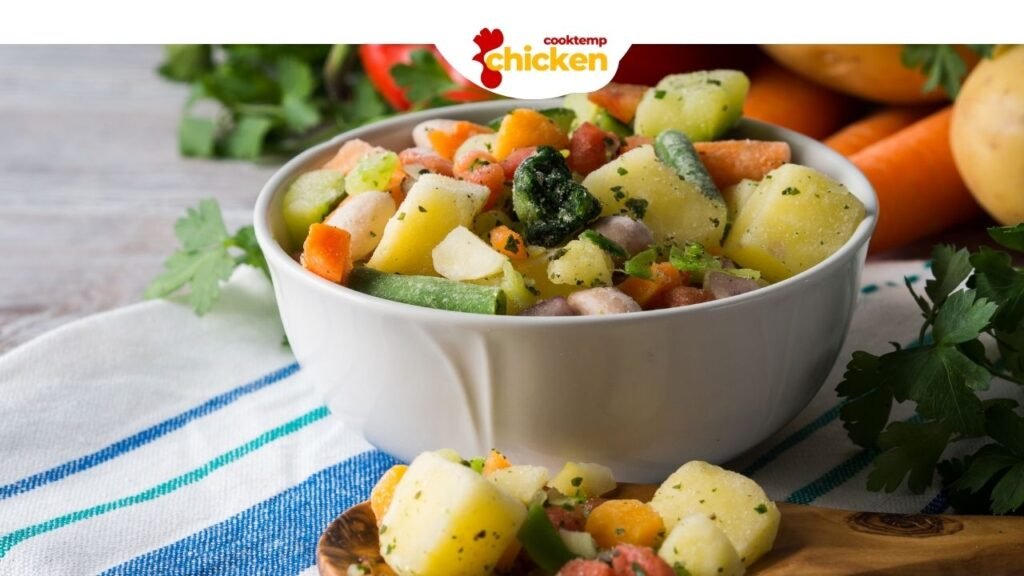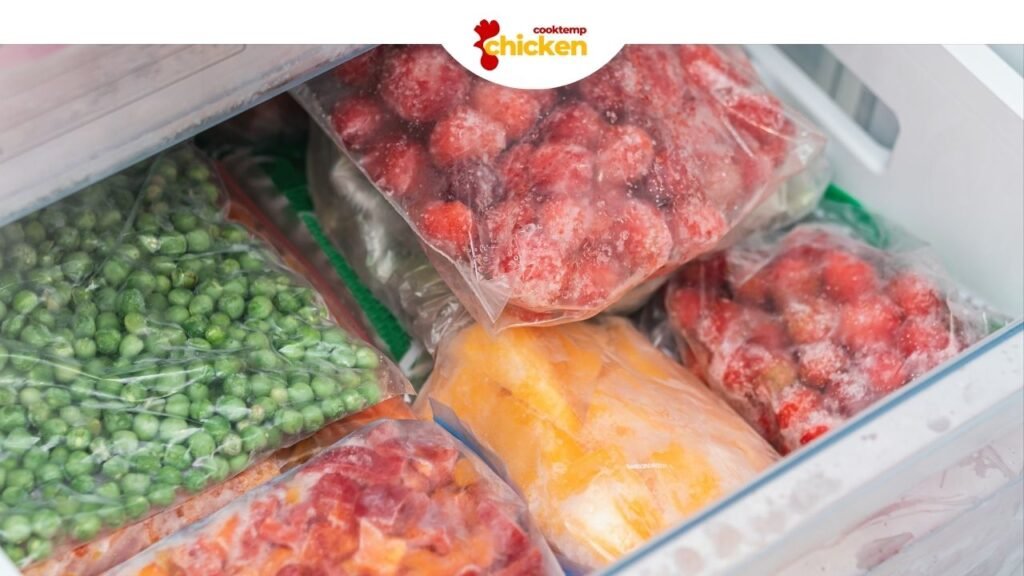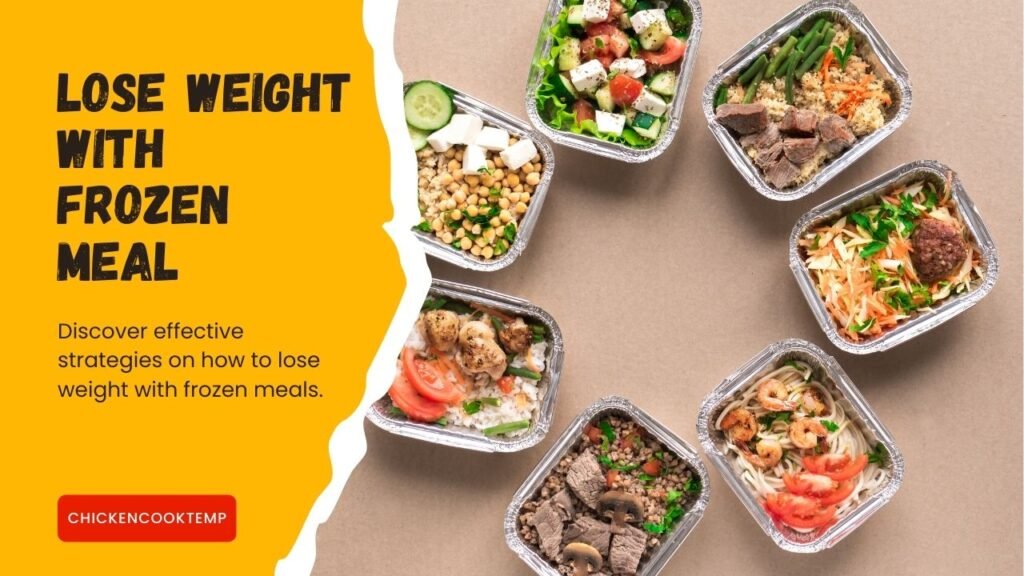Picture this: you’re juggling a busy schedule, trying to eat healthy, and the last thing you want is to spend hours in the kitchen every day. Enter how to lose weight with frozen meals—a convenient and effective solution for maintaining a balanced diet without the hassle. But can frozen meals really help you shed those extra pounds? Absolutely! This comprehensive guide will explore how frozen meals can be a game-changer in your weight loss journey, offering practical tips, delicious options, and strategies to make the most out of this modern convenience.
Why Choose Frozen Meals for Weight Loss?
Convenience Meets Nutrition
In today’s fast-paced world, finding the time to prepare healthy meals can be challenging. Frozen meals offer a quick and easy alternative, ensuring you have nutritious options readily available. But how do you make sure these meals align with your weight loss goals?
Portion Control Made Easy
One of the biggest challenges in weight loss is managing portion sizes. Frozen meals often come in pre-portioned servings, helping you avoid overeating and stay within your daily calorie limits.
Balanced Nutrition
Many frozen meals are designed to provide a balanced mix of protein, carbohydrates, and healthy fats, along with essential vitamins and minerals. This balance is crucial for sustaining energy levels and supporting overall health while losing weight.
The Benefits of Using Frozen Meals for Weight Loss

1. Time-Saving
Frozen meals eliminate the need for meal planning, grocery shopping, and extensive cooking, saving you precious time each day. This efficiency allows you to focus on other aspects of your weight loss plan, such as exercise and self-care.
2. Cost-Effective
Buying frozen meals in bulk can be more economical than purchasing individual fresh ingredients. Additionally, it reduces food waste since you only use what you need.
3. Variety and Taste
Frozen meals come in a wide variety of flavors and cuisines, making it easier to stick to your diet without getting bored. From Mediterranean to Asian-inspired dishes, there’s something for every palate.
4. Consistency
Sticking to a weight loss plan requires consistency. Frozen meals provide a reliable way to control your calorie intake and nutrient balance, helping you stay on track.
How to Lose Weight with Frozen Meals: Practical Tips
Choose Wisely: Reading Labels and Nutritional Information
Not all frozen meals are created equal. To maximize weight loss benefits, it’s essential to choose meals that are:
- Low in Calories: Aim for meals that range between 300-500 calories per serving.
- High in Protein: Protein helps you feel full longer and supports muscle maintenance.
- Low in Sodium and Sugar: Excess sodium can lead to water retention, while high sugar levels can spike your insulin and lead to cravings.
- Rich in Fiber: Fiber aids digestion and keeps you satiated.
Example of a Balanced Frozen Meal
| Nutrient | Amount per Serving |
|---|---|
| Calories | 400 |
| Protein | 25g |
| Carbohydrates | 45g |
| Fiber | 8g |
| Fat | 10g |
| Sodium | 600mg |
Incorporate Fresh Ingredients
While frozen meals are convenient, adding fresh vegetables or a side salad can boost the nutritional value and enhance the flavor. This combination ensures you get a variety of nutrients and keeps your meals exciting.
Plan Your Meals
Even with frozen meals, planning is key. Decide in advance which meals you’ll eat each day to avoid impulsive eating and ensure you’re meeting your calorie and nutrient goals.
Balance Your Diet
Ensure your overall diet includes a variety of foods to cover all your nutritional needs. Complement frozen meals with fresh fruits, nuts, and whole grains throughout the day.
Stay Active
Combine your meal plan with regular physical activity. Exercise not only burns calories but also improves mood and boosts metabolism, enhancing your weight loss efforts.
Top Frozen Meal Options for Weight Loss

1. Lean Protein-Based Meals
Lean proteins like chicken, turkey, and fish are excellent for weight loss. They help build muscle, which increases your metabolism and burns more calories even at rest.
Example: Grilled Chicken with Quinoa and Vegetables
- Calories: 350
- Protein: 30g
- Carbohydrates: 40g
- Fiber: 7g
- Fat: 8g
2. Plant-Based Meals
Plant-based frozen meals are rich in fiber and essential nutrients, making them a great choice for weight loss. They are typically lower in calories and fat while being high in vitamins and minerals.
Example: Vegetable Stir-Fry with Tofu and Brown Rice
- Calories: 300
- Protein: 20g
- Carbohydrates: 50g
- Fiber: 10g
- Fat: 6g
3. Low-Carb Meals
For those following a low-carb diet, there are plenty of frozen meal options that focus on proteins and vegetables while minimizing carbohydrates.
Example: Beef and Broccoli with Cauliflower Rice
- Calories: 400
- Protein: 28g
- Carbohydrates: 35g
- Fiber: 5g
- Fat: 12g
4. Balanced Mediterranean Meals
The Mediterranean diet is renowned for its health benefits, including weight loss. Frozen Mediterranean meals often feature lean proteins, healthy fats, and plenty of vegetables.
Example: Mediterranean Chicken with Couscous and Spinach
- Calories: 375
- Protein: 25g
- Carbohydrates: 45g
- Fiber: 9g
- Fat: 10g
Creating a Balanced Frozen Meal Plan
Sample Weekly Meal Plan
| Day | Breakfast | Lunch | Dinner | Snacks |
|---|---|---|---|---|
| Monday | Greek yogurt with berries | Grilled Chicken with Quinoa and Vegetables | Vegetable Stir-Fry with Tofu and Brown Rice | Apple slices with almond butter |
| Tuesday | Smoothie with spinach, banana, and protein powder | Beef and Broccoli with Cauliflower Rice | Mediterranean Chicken with Couscous and Spinach | Carrot sticks with hummus |
| Wednesday | Oatmeal with nuts and seeds | Low-Carb Turkey Meatballs with Zucchini Noodles | Baked Salmon with Sweet Potato and Asparagus | Greek yogurt |
| Thursday | Scrambled eggs with spinach | Lentil and Vegetable Stew | Chicken and Vegetable Curry with Brown Rice | Handful of mixed nuts |
| Friday | Cottage cheese with pineapple | Quinoa Salad with Black Beans and Corn | Shrimp and Broccoli Alfredo with Whole Wheat Pasta | Celery sticks with peanut butter |
| Saturday | Protein pancakes with fresh fruit | Grilled Veggie Wrap with Hummus | Beef Chili with Kidney Beans and Vegetables | Sliced bell peppers |
| Sunday | Avocado toast with poached eggs | Chickpea and Spinach Salad | Turkey and Vegetable Lasagna | Fresh berries |
Tips for Meal Planning
- Variety is Key: Incorporate different types of frozen meals to avoid monotony and ensure a wide range of nutrients.
- Balance Your Macros: Ensure each meal has a good balance of proteins, carbohydrates, and fats.
- Stay Hydrated: Drink plenty of water throughout the day to support metabolism and reduce hunger pangs.
Maximizing the Benefits of Frozen Meals
Incorporate Regular Exercise
Combining a healthy diet with regular physical activity enhances weight loss results. Aim for at least 150 minutes of moderate aerobic activity or 75 minutes of vigorous activity each week, along with strength training exercises.
Monitor Your Progress
Keep track of your meals, exercise, and weight loss progress. This can help you stay motivated and make necessary adjustments to your plan.
Stay Consistent
Consistency is crucial for long-term weight loss. Make frozen meals a regular part of your diet, but also allow yourself occasional treats to prevent feelings of deprivation.
Listen to Your Body
Pay attention to your hunger and fullness cues. Even with pre-portioned meals, it’s important to eat when you’re hungry and stop when you’re satisfied.
Common Challenges and How to Overcome Them
1. Boredom with Meal Options
Solution: Explore different cuisines and brands to keep your meals exciting. Adding fresh herbs, spices, or a side salad can also enhance flavor and variety.
2. High Sodium Content
Solution: Choose low-sodium frozen meals and complement them with fresh vegetables to balance the sodium levels. Always read labels to make informed choices.
3. Limited Availability of Healthy Options
Solution: Consider making your own frozen meals at home. Preparing and freezing meals in advance allows you to control the ingredients and nutritional content.
4. Cost Concerns
Solution: Look for sales and bulk deals on healthy frozen meals. Additionally, homemade frozen meals can be more cost-effective and tailored to your dietary needs.
Frequently Asked Questions (FAQs)
1. Are frozen meals really healthy for weight loss?
Yes, many frozen meals are designed to be balanced and portion-controlled, making them suitable for weight loss. However, it’s important to choose meals that are low in calories, high in protein, and low in sodium and added sugars.
2. How can I make frozen meals more nutritious?
Add fresh vegetables, herbs, or a side salad to your frozen meals. Incorporating fresh ingredients can boost the nutritional value and enhance the flavor.
3. Can I cook frozen meals in advance?
Absolutely! Preparing and freezing your own meals allows you to control the ingredients and ensure they meet your dietary needs. Homemade frozen meals can be just as convenient and often healthier than store-bought options.
4. How often should I eat frozen meals for weight loss?
Incorporating frozen meals into your diet a few times a week can be effective for weight loss, especially when combined with fresh, whole foods on other days. The key is balance and variety.
5. What should I look for when buying frozen meals?
Check the nutritional labels for calorie count, protein content, sodium levels, and fiber. Aim for meals that offer a good balance of macronutrients and are low in unhealthy fats and sugars.
6. Are there any frozen meal brands recommended for weight loss?
Brands like Amy’s Light & Lean, Healthy Choice, and Evol offer a variety of healthy frozen meal options suitable for weight loss. Always read labels to ensure they meet your nutritional criteria.
Conclusion
Understanding how to lose weight with frozen meals can transform your approach to dieting, making it more manageable and sustainable. Frozen meals offer convenience, portion control, and balanced nutrition, all of which are essential components of a successful weight loss plan. By choosing the right meals, incorporating fresh ingredients, and maintaining a balanced diet and exercise routine, you can achieve your weight loss goals without sacrificing taste or convenience.
Remember, the key to success lies in consistency, variety, and making informed choices that align with your health objectives. Whether you’re a busy professional, a parent, or someone looking to simplify their meal planning, frozen meals can be a valuable tool in your weight loss arsenal.
Have you tried incorporating frozen meals into your diet? Share your experiences and tips to inspire others on their weight loss journey. After all, a little convenience can go a long way in achieving big results!
Happy healthy eating and successful weight loss!


